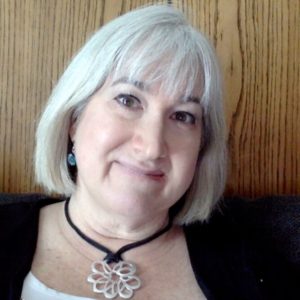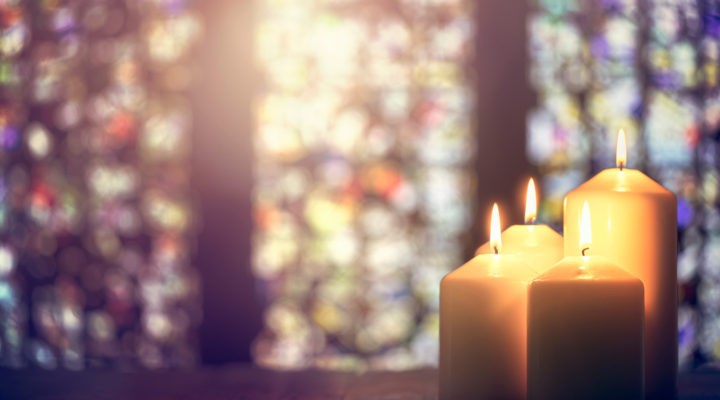Marci Wilson-Boggs grew up in a church that promoted the King James Version as the only valid biblical translation and in which liturgical seasons, like Advent, were rarely if ever mentioned.

Marci Wilson-Boggs
“I was raised Independent Baptist,” the Nashville resident said. “We were, as my dad would say, independent, fundamental Bible-believing Baptists.”
Now Wilson-Boggs is on her way to ordination through a Lutheran congregation and believes that sacred seasons are vital to the Christian faith.
And Advent is crucial for achieving and maintaining spiritual and emotional health in the COVID-19 pandemic, she said. “It allows you to cry out to God, to air your grievances, much like the psalmists did.”
Wilson-Boggs feels so fervently about it that she penned a blog post recently titled “Why We Need Advent More than Ever in 2020.” It was published by Pinnacle Leadership Associates, a clergy and congregational consulting ministry where she works as the enews editor.
She believes Advent demands a stillness and personal transparency that is needed to prepare for the coming of Christ — attributes undervalued in American society and churches today, even less so during a pandemic many are in a hurry to be past.
“That kind of honesty in our lives is healing. It’s unhealthy to pretend everything is great when everybody knows it’s not. We all just want the virus to be over and we want to resume our lives, but that’s not what’s happening. We have to wait.”
Wilson-Boggs spoke with Baptist News Global about the spiritual journey that led her to embrace and celebrate Advent, and to want to share it with others.
“In my Baptist upbringing, Advent was barely a blip on the radar.”
Where are you on your spiritual journey?
I’m in the process of adjusting to the Evangelical Lutheran Church in America. And this is what brought me to Advent much more clearly. In my Baptist upbringing, Advent was barely a blip on the radar. We didn’t focus on it at all. Lutherans observe Advent very seriously, and they don’t sing Christmas carols until Christmas Eve.
Are you ordained in the Lutheran church?
I am in candidacy for the Ordination of Word and Sacraments, which in the Lutheran tradition means you can serve Communion. But that takes a long time — two years. And with that ordination you can actually become a pastor at an ELCA church. But I never felt like I wanted to be a preacher. I have come at ministry from a business background. At Pinnacle, I do enews and I have been in social media for eight years. From that perspective I can see that churches need the Holy Spirit, obviously, but they also have to realize they have to be stewards of the practical side as well. You have to have a balance.
What is it about Advent that really grabbed you?
It was learning that many churches have this contemplative element where you have to stop or suspend time occasionally to ponder where you are. Many other faiths do not want to do this because it is uncomfortable. If you have ever been in media, you know they have this saying that they want to avoid dead air. They’ll do anything to avoid silence. I have found this to be especially true in nondenominational churches, where the worst thing they can do is have silence or have a transition between songs that takes too long. Now I contrast that with Advent, which says, “Stop. Keep watch. Wait.” Not that it’s easy. I think a lot of us from Baptist traditions struggle with the idea of pausing to consider our lives and to think about the Scriptures we just read.
How do you describe this season to your non-liturgical or other Protestant friends?
I explain it as a time of waiting — waiting for the Messiah. Think of your Jewish friends who have been waiting for centuries for the Messiah. Take a couple weeks before Christmas and give yourself time to grieve, especially this year. A lot of people have lost family members. They have lost friends. People are living through that. Advent gives people time to stop and grieve. We get swept up in the Christmas season with all the lights. I’m all for celebrating, but before you have that joy you have to let go of some of that sorrow.
And it seems like churches this time of year sometimes don’t want to let people grieve. They say, “Put a smile on your face.” If you lost a parent this year, or a friend, or you lost your job, sometimes it’s really hard to put on a brave face. Advent gives you a chance just to grieve and not pretend everything is shiny and great.
Is Advent equally powerful or needed when life isn’t so challenging?
Even in better times it’s important to stop and take a respite from the hustle and bustle of the holidays. Yes, even in good times it’s important to take a breath. But in good times or bad, no one wants to slow down and look at their lives. It’s much easier just to stay busy.
“Advent tells us we cannot force Christ to come when we want him to.”
You write in your blog post that Advent challenges our illusions of control in difficult times. How does it do that?
Advent tells us we cannot force Christ to come when we want him to. It’s a period of waiting. The illusion of control is saying, “I’m going to force a happy Christmas this year.” You think you have control over your life but really God is in control and we’re not, and Advent acknowledges that.
You also provided a link to a piece of sacred music. How important is music to observing Advent? Is it necessary?
I think sad songs really make my heart better. Music in general bypasses the brain and goes right to the heart. The emotion of music can really bring out our contemplation and inspire prayer.
Do you see seasons like Advent as spiritually formative?
Advent encourages people to become more comfortable with silence, which is a very difficult spiritual discipline. Meditation is a big thing right now, and I’m not against that at all. But Christians over time have forgotten that there used to be a lot of silence and meditation in worship, especially during Advent. They have become more entertainment focused. And when it becomes about entertainment, you lose that contemplative element because you can’t afford to have silence.
What can someone do right now to tap into Advent, even if they don’t belong to a congregation that observes it?
Find a quiet place and slow down and pray. Spend some time in prayer and meditation. Stop where you are even if you only have one minute, and spend that minute praying. Because it’s more than praying. It’s laying yourself open to God. Take that one minute and get honest with God. Go past the pomp and circumstance and say this is how I feel today, God. Get honest.
If Advent this year is breathing through the pandemic, what is Christmas going to be?
Christmas will be a time of hope and rejoicing. We’ll be able to say, “The Lord has come; things are going to get better.” I think there will be reasons to rejoice.
Related articles:
We’re not ready for Advent, but it’s coming anyway | Paul Robeson Ford


